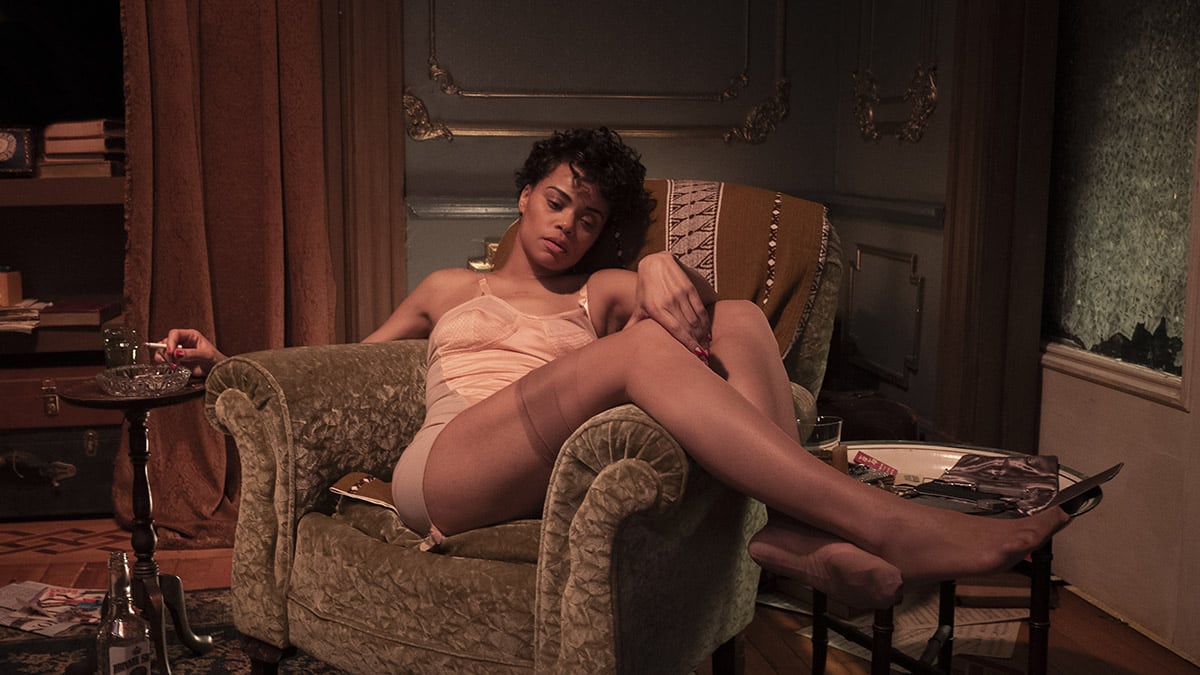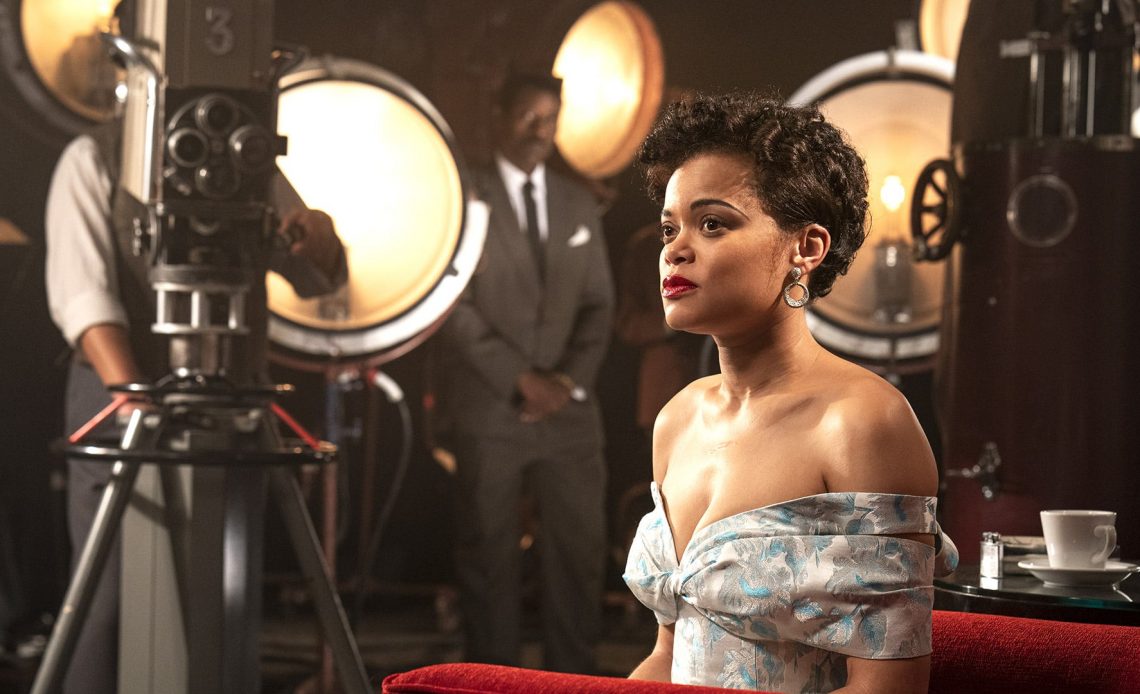The final years of Billie Holiday’s life, her struggles to maintain her prolific image and the hardships of being a person of colour during the prohibition era are poorly represented in the lacklustre biopic, The United States vs. Billie Holiday.

Andra Day is an absolute gem portraying the late blues icon with intense vulnerability. Her range goes from comedic to absolutely devastating in a matter of moments, sometimes in the same scene, quickly making her the best part of this otherwise very underwhelming representation of Holiday’s fascinating life story.
Other positives include the supporting cast of Trevonte Rhodes and Garret Hedlund giving very layered performances. They both stand out among the enormous cast and, apart from Day, have a lot of presence within the story, even if at times their placement feels a little disjointed. The look of the film has a very old-timey feel to it, with inclusions of actual footage from the ’50s adding to the vintage nature.
The United States vs. Billie Holiday is, unfortunately, a huge mess. The first thirty-to-forty minutes go from scene to scene with no natural flow, making it feel disconnected and overly long. Tonally, each scene is very conflicting. It goes from a heartbreaking scene of racial tension to a bizarre dog funeral sequence that adds absolutely nothing except a light chuckle.

The film’s pace makes every scene feel way too drawn out, but at the same time, no scene is given time to breathe due to its disorganised construction and awful editing. About halfway into the movie, there is a big payoff revolving around the controversial “Strange Fruit” song, where Day stares into the soul of the audience in a nearly unbroken long shot. It is a hauntingly beautiful scene that has a real sense of finality to it. Had it ended then, not only would the film have been far more impactful overall, but it also would have shortened the running time to something more digestible.
There are good scenes sprinkled throughout this music biopic, carried by the eclectic performances and the context of the film’s era. The message of social injustice and a lack of change is an unfortunate one that bears repeating, even to this day. However, most of the film’s story is not devoted to this horrible side of society and focuses on Holiday’s personal life instead, in a very lacking way. Despite a clunky beginning and tonal inconsistencies, the themes portrayed are done tastefully and without holding back, which is the most commendable aspect of the movie besides the acting.

With a stronger script and tighter editing, the film could have been something extraordinary. Andra Day is a powerhouse, portraying the blues legend very well. It’s just a shame she wasn’t given better material to work with. Overall, The United States vs. Billie Holiday is an underwhelming affair that offers little in terms of a lasting impact. For huge fans of her music, it may be an acceptable two hours of content. For the rest of us, not so much.
Fun Fact:
Andra Day becomes the second actress to be nominated at both the Golden Globes and the Academy Awards for portraying Billie Holiday. The first being Diana Ross for Lady Sings the Blues (1972). Coincidentally, the role of Billie Holiday was also the screen debut of both actresses.




COMMENTS